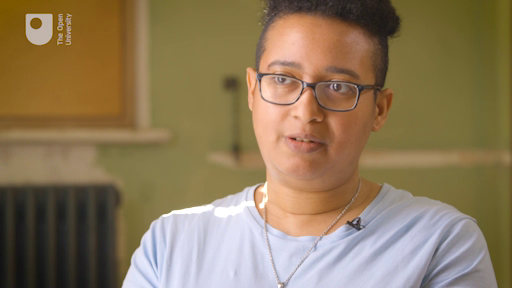1.1 Caring in intimate relationships
Like others in the population, some people with learning disabilities find themselves becoming a carer for their partner.
Activity 2 Shifting roles
Watch this short video about Charlene and Terry. They are in a romantic relationship but Charlene is also Terry’s carer. Then answer the questions below.

Transcript: Video 3
a.
Because Terry’s social care package changed
b.
Because Terry’s family circumstances changed
The correct answer is b.
a.
Getting ready to go somewhere
b.
Getting to places
c.
Financial issues
The correct answers are a and b.
Have the videos about Charlene and Terry (Video 3) and Gloria and Muriel (Video 2) in this section challenged your views about the types of relationships that people with learning disabilities have? The boundaries in relationships are often blurred: a romantic relationship may cross into a caring relationship; a caring relationship may become a deep and long-lasting friendship. This applies to everyone, not just people with learning disabilities.
This section has shown that while many people with learning disabilities need support, some also provide care and support for others. However, society rarely acknowledges when people with learning disabilities are caring for others. This means that people with learning disabilities can lose out on support or resources that they are entitled to as carers.
